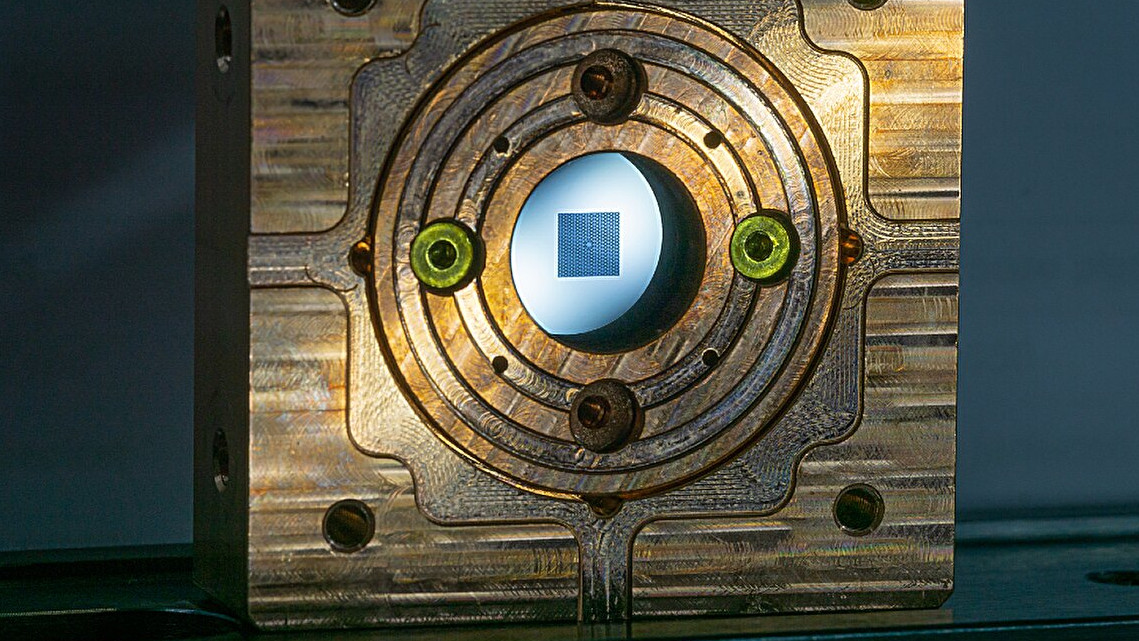
A device called a quantum drum may serve as "a crucial piece in the very foundation for the Internet of the future with quantum speed and quantum security", says Mads Bjerregaard Kristensen, postdoc from the Niels Bohr Institute in a new research piece. The original research paper has an official briefing available for free on Phys.org, and can be found published in full in the Physical Review Letters journal for a subscription fee.
One key issue with quantum computing and sending quantum data ("qubits") over long distances is the difficulty of maintaining data in a fragile quantum state — where losing data or "decohering" becomes a much higher risk. Using a quantum drum at steps along the chain can prevent this data decoherence from occurring, enabling longer and even potentially global communication distances.
The current record for sending qubits over a long distance is held by China and Russia, and is about 3,800 km with only encryption keys sent as quantum data. The standard wired qubit transmission range is roughly 1000 kilometers before loss of photons ruins the data. Quantum drums could potentially address this limitation.
How does a 'quantum drum' work? In a similar manner to how existing digital bits can be converted into just about anything (sound, video, etc.), qubits can be converted as well. However, qubits require a level of precision literally imperceivable to the human eye, so converting qubits without data loss is quite difficult. The quantum drum seems like a potential answer. Its ceramic glass-esque membrane was shown to be capable of maintaining quantum states as it vibrates with stored quantum information.
Another important purpose served by these quantum drums is security. Were we to start transferring information between quantum computers over the standard Internet, it would inherit the same insecurities as our existing standards. That's because it would need to be converted to standard bits and bytes, which could become essentially free to decode in the not-so-distant quantum future.
By finding a quantum storage medium that doesn't lose any data and allows information to be transferred over much longer distances, the vision of a worthwhile "Quantum Internet" begins to manifest as a real possibility, and not simply the optimism of quantum computing researchers.
Quantum computing research continues to be a major area of interest, often with highly technical discussions and details on the technology. A research paper on quantum drums and their potential of course doesn't mean that this technique will prove to be commercially viable. Still, every little step forward creates new opportunities for our seemingly inevitable quantum-powered future.







